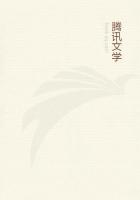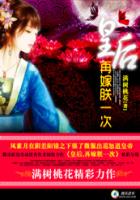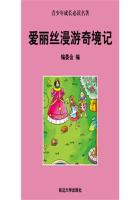This anecdote may serve to illustrate the attitude of my conscience, at this time, with regard to theology. I was not consciously in any revolt against the strict faith in which I had been brought up, but I could not fail to be aware of the fact that literature tempted me to stray up innumerable paths which meandered in directions at right angles to that direct strait way which leadeth to salvation. I fancied, if I may pursue the image, that I was still safe up these pleasant lanes if I did not stray far enough to lose sight of the main road. If, for instance, it had been quite certain that Shakespeare had been irrecoverably damnable and damned, it would scarcely have been possible for me to have justified myself in going on reading Cymbeline. One who broke bread with the Saints every Sunday morning, who 'took a class' at Sunday school, who made, as my Father loved to remind me, a public weekly confession of his willingness to bear the Cross of Christ, such an one could hardly, however bewildering and torturing the thought, continue to admire a lost soul. But that happy possibility of an ultimate repentance, how it eased me! I could always console myself with the belief that when Shakespeare wrote any passage of intoxicating beauty, it was just then that he was beginning to breathe the rapture that faith in Christ brings to the anointed soul. And it was with a like casuistry that I condoned my other intellectual and personal pleasures.
My Father continued to be under the impression that my boarding-school, which he never again visited after originally leaving me there, was conducted upon the same principles as his own household. I was frequently tempted to enlighten him, but I never found the courage to do so. As a matter of fact the piety of the establishment, which collected to it the sons of a large number of evangelically minded parents throughout that part of the country, resided mainly in the prospectus. It proceeded no further than the practice of reading the Bible aloud, each boy in successive order one verse, in the early morning before breakfast. There was no selection and no exposition; where the last boy sat, there the day's reading ended, even if it were in the middle of a sentence, and there it began next morning.
Such reading of 'the chapter' was followed by a long dry prayer.
I do not know that this morning service would appear more perfunctory than usual to other boys, but it astounded and disgusted me, accustomed as I was to the ministrations at home, where my Father read 'the word of God' in a loud passionate voice, with dramatic emphasis, pausing for commentary and paraphrase, and treating every phrase as if it were part of a personal message or of thrilling family history. At school, 'morning prayer' was a dreary, unintelligible exercise, and with this piece of mumbo-jumbo, religion for the day began and ended.
The discretion of little boys is extraordinary. I am quite certain no one of us ever revealed this fact to our godly parents at home.
If any one was to do this, it was of course I who should first of all have 'testified'. But I had grown cautious about making confidences. One never knew how awkwardly they might develop or to what disturbing excesses of zeal they might precipitously lead. I was on my guard against my Father, who was, all the time, only too openly yearning that I should approach him for help, for comfort, for ghostly counsel. Still 'delicate', though steadily gaining in solidity of constitution, I was liable to severe chills and to fugitive neuralgic pangs. My Father was, almost maddeningly, desirous that these afflictions should be sanctified to me, and it was in my bed, often when I was much bowed in spirit by indisposition, that he used to triumph over me most pitilessly. He retained the singular superstition, amazing in a man of scientific knowledge and long human experience, that all pains and ailments were directly sent by the Lord in chastisement for some definite fault, and not in relation to any physical cause. The result was sometimes quite startling, and in particular I recollect that my stepmother and I exchanged impressions of astonishment at my Father's action when Mrs.
Goodyer, who was one of the 'Saints' and the wife of a young journeyman cobbler, broke her leg. My Father, puzzled for an instant as to the meaning of this accident, since Mrs. Goodyer was the gentlest and most inoffensive of our church members, decided that it must be because she had made an idol of her husband, and he reduced the poor thing to tears by standing at her bed-side and imploring the Holy Spirit to bring this sin home to her conscience.
When, therefore, I was ill at home with one of my trifling disorders, the problem of my spiritual state always pressed violently upon my Father, and this caused me no little mental uneasiness. He would appear at my bedside, with solemn solicitude, and sinking on his knees would earnestly pray aloud that the purpose of the Lord in sending me this affliction might graciously be made plain to me; and then, rising, and standing by my pillow, he would put me through a searching spiritual inquiry as to the fault which was thus divinely indicated to me as observed and reprobated on high.
It was not on points of moral behaviour that he thus cross-examined me; I think he disdained such ignoble game as that. But uncertainties of doctrine, relinquishment of faith in the purity of this dogma or of that, lukewarm zeal in 'taking up the cross of Christ', growth of intellectual pride,--such were the insidious offences in consequence of which, as he supposed, the cold in the head or the toothache had been sent as heavenly messengers to recall my straggling conscience to its plain path of duty.

